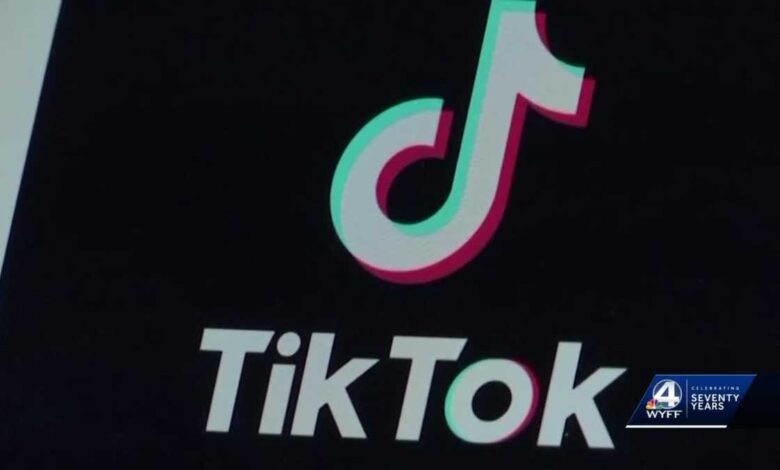Is TikTok truly a cybersecurity threat?

Wednesday President Joe Biden signed a $95 billion foreign aid bill that included a potential ban on TikTok after lawmakers raised national security concerns. The app’s Chinese parent company has just nine months to sell to an American-approved company or be banned in the United States. But does an app like this truly pose a national threat? Or is it one piece of a bigger problem?The app itself is addicting. Tens of millions of Americans are swiping up monthly. The behemoth of a social media platform uses an algorithm to suggest videos you’ll like to keep you on the app. “I’ll have a day off and I haven’t cleaned, and I haven’t done anything,” said Brittany Dodd. “The cats are wondering when they’re going to be fed. And I’m like just one more video.” It shows you everything from the latest trends to the latest news. “We like it. I like doing the dances on there,” said 10-year-old London. “I think it’s a softer way to receive information,” a recent college graduate, Micaela Jack said.They choose what users see by gathering information on them. “It’s just kind of scary to know how much information they can know about me and I don’t even know that it’s getting out there,” said Nikki Holcombe, who doesn’t have the app.TikTok is not alone. If you’re online, your information most likely is as well. According to Mitch Shue, an expert with decades of experience in the field and Clemson’s AI Research Institute Executive Director, “Truth be told I think a lot of information about us can be bought. But I think the highlight here is that the Chinese government could have unfettered access.”Why is that a problem? Legislators say foreign agents could use that information. “To distribute misinformation, intentional disinformation campaigns,” Shue said. “Especially in this year. We’re heading into a presidential election year. Embarrassment or other sorts of compromising activity that could influence what those leaders do or say. That happens all the time.”Byte Dance has nine months to either sell the app to an American-approved company or it will be banned.Shue says even if another company does buy the app, they’re still going to collect our information. It’ll just be a new company in a new country doing it.
Wednesday President Joe Biden signed a $95 billion foreign aid bill that included a potential ban on TikTok after lawmakers raised national security concerns.
The app’s Chinese parent company has just nine months to sell to an American-approved company or be banned in the United States.
But does an app like this truly pose a national threat? Or is it one piece of a bigger problem?
The app itself is addicting. Tens of millions of Americans are swiping up monthly.
The behemoth of a social media platform uses an algorithm to suggest videos you’ll like to keep you on the app.
“I’ll have a day off and I haven’t cleaned, and I haven’t done anything,” said Brittany Dodd. “The cats are wondering when they’re going to be fed. And I’m like just one more video.”
It shows you everything from the latest trends to the latest news.
“We like it. I like doing the dances on there,” said 10-year-old London.
“I think it’s a softer way to receive information,” a recent college graduate, Micaela Jack said.
They choose what users see by gathering information on them.
“It’s just kind of scary to know how much information they can know about me and I don’t even know that it’s getting out there,” said Nikki Holcombe, who doesn’t have the app.
TikTok is not alone. If you’re online, your information most likely is as well.
According to Mitch Shue, an expert with decades of experience in the field and Clemson’s AI Research Institute Executive Director, “Truth be told I think a lot of information about us can be bought. But I think the highlight here is that the Chinese government could have unfettered access.”
Why is that a problem? Legislators say foreign agents could use that information.
“To distribute misinformation, intentional disinformation campaigns,” Shue said. “Especially in this year. We’re heading into a presidential election year. Embarrassment or other sorts of compromising activity that could influence what those leaders do or say. That happens all the time.”
Byte Dance has nine months to either sell the app to an American-approved company or it will be banned.
Shue says even if another company does buy the app, they’re still going to collect our information. It’ll just be a new company in a new country doing it.



